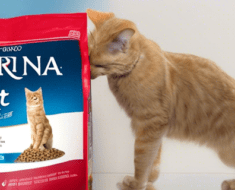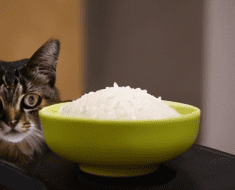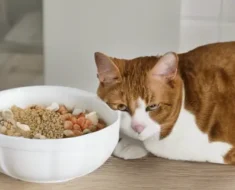A kitten should start eating wet food at around 4-6 weeks old to support growth and development. Wet food helps young kittens get essential nutrients for their overall health and well-being.
When transitioning a kitten to wet food, it’s important to introduce it gradually to prevent digestive issues. Making sure the wet food is specifically formulated for kittens will ensure they receive the proper balance of nutrients. Kittens may prefer wet food over dry kibble due to its higher moisture content and more palatable texture.
Monitoring their weight and overall health as they adjust to the new diet is crucial for their long-term growth and happiness. By introducing wet food at the right time, you can set your kitten up for a healthy and nutritious diet from the start.
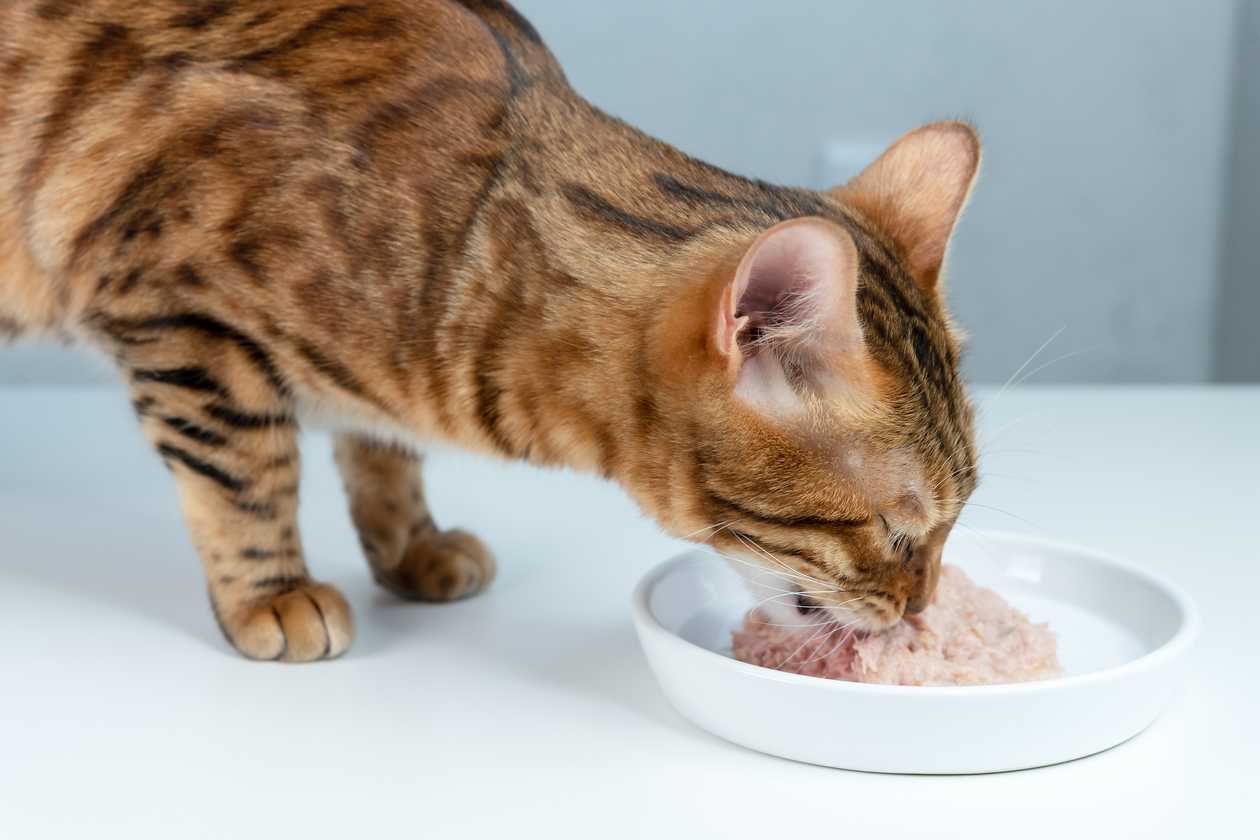
Credit: time.com
The Importance Of Wet Food For Kittens
Kittens should start eating wet food at around 4-6 weeks of age. Introducing wet food early promotes hydration and supports healthy growth. Wet food is easier for kittens to digest compared to dry kibble. It provides essential nutrients for development. Feeding wet food helps prevent dehydration in kittens. Early introduction to wet food encourages them to adapt to different textures. Transitioning kittens to wet food gradually is essential for their well-being.
:max_bytes(150000):strip_icc()/SPR-PurinaOne-HealthyKitten-ChickenAndSalmon-Madonna-01-9836021061844db78176c756ebb6ac93.jpg)
Credit: www.thesprucepets.com
Understanding Kittens’ Nutritional Needs
Kittens have unique nutritional requirements that require a balance of nutrients for growth.
Wet food is important as it provides adequate hydration and helps with digestion.
Feeding kittens wet food can help meet their needs during early development.
Consulting with a veterinarian is recommended to ensure proper nutrition for kittens.
Transitioning Kittens To Wet Food
Transitioning Kittens to Wet Food
Gradual Introduction of Wet Food
Tips for a Smooth Transition
When introducing wet food to kittens, it is important to do so gradually. Start by mixing a small amount of wet food with their usual dry food and gradually increase the proportion over a period of 7-10 days. Ensure the wet food is specifically formulated for kittens, as their nutritional needs differ from adult cats. Monitor their digestion and overall health during the transition. It’s normal for kittens to take time to adjust to new food textures, so be patient. Feed the kittens in a quiet and stress-free environment, and make sure they have access to fresh water at all times. Consult with a veterinarian if you encounter any issues during the transition.
Feeding Schedule For Kittens
Feeding a kitten wet food plays a crucial role in their development. Determining the right portions for your kitten is important in maintaining their health and nutrition.
It is recommended to establish a feeding schedule for your kittens to ensure they receive the necessary nutrients. Regular feeding times help to regulate their digestive system and establish a routine.
When introducing wet food to kittens, it is essential to start with small portions. Gradually increase the amount as they grow, allowing their bodies to adjust to the new diet. Observe their behavior and monitor their weight to ensure they are gaining appropriately. Consult with your veterinarian to determine the ideal feeding schedule for your specific kitten.
Remember to provide fresh water alongside wet food to keep your kitten hydrated. Maintaining a balanced diet with the right portions of wet food will contribute to their overall well-being and growth.
Common Mistakes To Avoid
Feeding a kitten wet food is an important aspect of their nutrition, but it’s essential to know when and how much to feed. Common mistakes to avoid include overfeeding and ignoring veterinary advice.
Overfeeding can lead to weight gain and associated health problems in kittens. It’s crucial to follow the recommended serving sizes and feeding schedule provided by the food manufacturer or your veterinarian.
Ignoring veterinary advice is another common mistake. Your veterinarian can offer valuable guidance on feeding and nutrition to ensure your kitten’s overall well-being. They may also recommend specific wet food brands that suit your kitten’s age, size, and dietary needs.
By understanding the importance of portion control and consulting with your veterinarian, you can provide your kitten with a balanced diet for optimal growth and development.
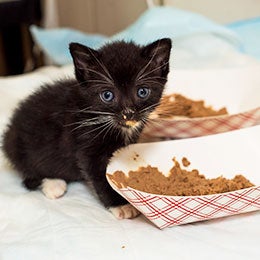
Credit: www.aspca.org
Frequently Asked Questions On When Should A Kitten Eat Wet Food
When Can I Introduce Wet Food To My Kitten?
Introduce wet food to your kitten at 4-6 weeks while gradually reducing milk intake. Start with small portions and monitor for any digestive issues.
Can 4 Week Old Kittens Eat Wet Food?
Yes, 4-week-old kittens can start eating wet food but should still nurse from their mother for proper nutrition.
Should Kittens Eat Wet Or Dry Food?
Kittens should eat a mix of wet and dry food to meet their nutritional needs. Wet food provides hydration, while dry food helps with dental health.
When Should I Feed My Cat Wet Food?
Feed your cat wet food to provide hydration and essential nutrients. It’s beneficial for cats with urinary issues or those needing extra moisture in their diet. Offer wet food as a supplement or main meal, depending on your cat’s needs and preferences.
Always consult your veterinarian for personalized recommendations.
Conclusion
Feeding your kitten wet food is essential for their growth and development. As they transition from milk to solid foods, introducing wet food at around four weeks old can help provide the necessary nutrients they need. Remember to consult with a veterinarian for personalized feeding recommendations for your kitten’s specific needs.
